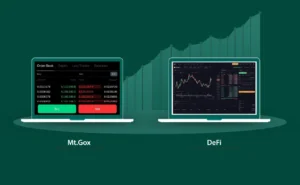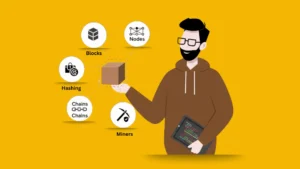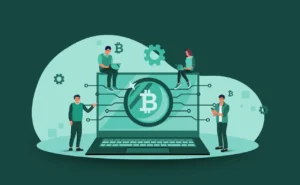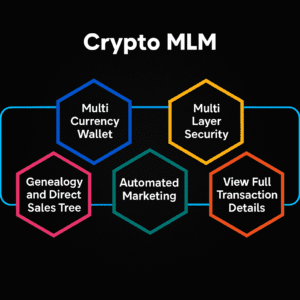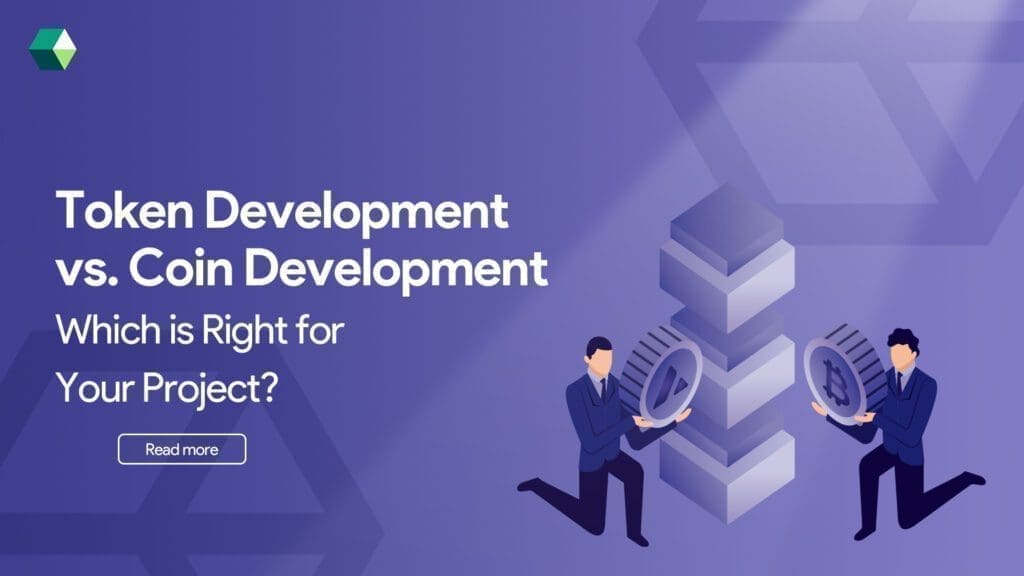
In the blockchain industry, innovation moves fast, and competition is fierce. Entrepreneurs, developers, and enterprises are continuously seeking ways to harness blockchain technology to build new ecosystems, streamline financial systems, and revolutionize industries. One of the foundational questions at the onset of any blockchain project is: Should you create a token or a coin?
This blog explores the fundamental differences between crypto coin development and crypto token development solutions, offering insight into which option suits your needs. You’ll also learn when it’s appropriate to engage in token development services versus when your project might need full-fledged coin development services. Additionally, we’ll cover the benefits, use cases, and potential challenges that come with each route, using easy and user-friendly language to keep things clear and accessible.
Understanding the Basics: What is a Coin?
A coin refers to a digital asset that operates on its own independent blockchain. Coins are foundational to the blockchain they reside on and often serve as the native currency of that blockchain. When you build a coin, you are essentially creating an entire blockchain ecosystem where your coin acts as the primary unit of value.
Examples of Popular Coins:
- Bitcoin (BTC) – The original cryptocurrency with its own blockchain.
- Ethereum (ETH) – Runs on the Ethereum blockchain and is used to pay for gas fees.
- Litecoin (LTC) – A peer-to-peer cryptocurrency built on its own blockchain.
- Solana (SOL) – A high-performance coin on its own Layer 1 blockchain.
Characteristics of Coins:
- Have their own blockchain protocol.
- Used as a medium of exchange, store of value, or to pay for transactions (gas fees).
- Can be mined or staked depending on the consensus mechanism.
- Offer complete control and customizability over the network’s operation.
When you choose coin development, you’re not just launching a digital asset—you’re launching an entire infrastructure with nodes, validators, consensus rules, APIs, and possibly a new virtual machine (VM).
Understanding the Basics: What is a Token?
A token is a digital asset created on an existing blockchain infrastructure. It does not have its own independent blockchain but leverages the security, decentralization, and architecture of a parent blockchain such as Ethereum, Binance Smart Chain (BNB Chain), Solana, Avalanche, or Polygon.
Examples of Popular Tokens:
- USDT (Tether) – A stablecoin deployed on multiple blockchains, originally on Ethereum.
- UNI (Uniswap) – A governance token built on the Ethereum blockchain.
- MATIC (Polygon) – Originally a token before the team launched its own chain.
- SHIB (Shiba Inu) – A meme-based ERC-20 token.
Characteristics of Tokens:
- Built using smart contract standards like ERC-20 (Ethereum), BEP-20 (BNB Chain), or SPL (Solana).
- Created and deployed through smart contracts.
- Used for a wide variety of purposes including governance, staking, DeFi, NFTs, and access control.
- Depend on the parent blockchain for security and operations.
Token Development is more accessible and cost-effective for startups and enterprises looking to test ideas, scale applications, or introduce blockchain elements to existing platforms.
Coin vs Token: A Technical Comparison
Let’s break down some core differences that can influence your choice between the two:
If you’re looking to build fast and lean, engaging in token development services is your best bet. But if you need to customize every layer of your project’s ecosystem, coin development services offer that flexibility—though at a higher cost and with more responsibility.
Use Cases: Coin Development
Coins are often foundational elements of new blockchain platforms. Here are some situations where crypto coin servicesare the right approach:
- You’re creating a blockchain ecosystem with its own validators and consensus rules.
- Your business model involves creating a native currency for a new network.
- You need full control over transaction fees, tokenomics, governance, and scalability.
By working with a seasoned crypto coin development , businesses can design networks that are optimized for performance, security, and transparency. These services typically include whitepaper creation, wallet integration, blockchain architecture, and community tools.
Use Cases: Token Development
Tokens offer a faster path to market and flexibility to adapt to existing blockchain ecosystems. Popular use cases include:
- Launching a governance token for a decentralized organization.
- Creating a token for NFT marketplaces or metaverse applications.
- Using tokens for yield farming, staking, or DeFi lending platforms.
- Building loyalty points or rewards systems within digital platforms.
With token development solutions, developers can focus more on product functionality and user experience rather than the intricacies of blockchain infrastructure. This is why startups often prefer tokens—especially when speed and affordability are critical.
Pros and Cons: Coin Development
Pros:
- Full Control and Independence – Complete authority over transaction rules, block size, mining rewards, and more.
- Custom Consensus – Ability to choose or innovate on proof-of-work, proof-of-stake, proof-of-history, etc.
- Brand Recognition – Building a Layer 1 chain can position your brand alongside Ethereum, Solana, and others.
- Security and Ownership – You control the network’s rules and don’t rely on external validators.
Cons:
- High Cost – Coin development can be capital-intensive, often requiring six-figure investments.
- Time-Consuming – It takes months to build and test a secure blockchain.
- Maintenance Burden – You’ll need to maintain the network, validators, explorers, and more.
- Community Building is Harder – Gaining adoption for a new blockchain is significantly harder than for a token.
For comprehensive Coin Development Services, businesses can rely on experts to build, launch, and manage their decentralized networks effectively.
Pros and Cons: Token Development
Pros:
- Quick Deployment – You can launch a token in hours or days using smart contract templates.
- Lower Development Costs – No need to build full blockchain infrastructure.
- Easier to Integrate – Easier listing on DEXs, integration with DeFi, and wallet compatibility.
- Scalable MVPs – Ideal for startups looking to validate an idea or build a prototype.
Cons:
- Limited Control – You rely on the parent blockchain’s uptime, scalability, and fee structure.
- Smart Contract Vulnerabilities – You must audit your token code to avoid exploits.
- Transaction Fees in Native Coin – Users must pay fees in ETH, BNB, or other coins.
With expert Token Development Services, businesses can enter the crypto space faster, securely, and cost-effectively.
Strategic Scenarios: When to Use a Coin vs a Token
Coin Development Is Best When:
- You’re creating a Layer 1 blockchain or protocol.
- You want complete freedom over governance and infrastructure.
- You’re solving blockchain scalability, privacy, or consensus issues.
- You’re building a decentralized ecosystem (e.g., smart contract platform).
Token Development Is Best When:
- You’re launching a DeFi platform, NFT project, or DApp.
- You want fast go-to-market and lower upfront costs.
- You want to use blockchain for loyalty points, access control, or voting.
- You’re fundraising through a token sale (ICO, IEO, etc.).
Whether you’re working with a Crypto Token Development Company or a Crypto Coin Developer, choosing the right partner is essential to ensure your project’s success.
The Migration Path: Token to Coin
Many successful projects started as tokens and later migrated to their own blockchains. For instance, Binance Coin (BNB) began as an ERC-20 token and transitioned to the Binance Chain. This hybrid approach lets projects build community and test market viability before investing in a full blockchain.
Benefits of This Approach:
- Lowers initial risk.
- Builds a user base before a full mainnet launch.
- Offers time to develop the technical team and ecosystem tools.
This strategy is often advised by Crypto Coin Development Services as it allows for staged growth with proper funding and market validation.
Making the Right Decision
Choosing between token development and coin development depends on your vision, resources, timeline, and project goals. Ask yourself:
- Do I need full control over a blockchain?
- How quickly do I need to go to market?
- Is cost a significant factor?
- Will I expand the project into a broader ecosystem later?
If you’re aiming to launch quickly, cost-effectively, and integrate with existing ecosystems, start with a solution like crypto token development. If you want to build a new blockchain layer, create a unique value infrastructure, and control all elements—explore the route of Crypto Coin Development.
Whatever you choose, ensure you work with experienced blockchain developers who can guide you through smart contract development, node deployment, security auditing, and launch strategy.
Need Help Choosing?
Still unsure whether you need a token or a coin for your blockchain project? A qualified crypto coin services team or crypto token development solutions provider can help you evaluate your goals and make the best technical and strategic decision. From smart contract deployment to full-scale blockchain creation—get the support you need to build your future on the blockchain. Talk to a blockchain expert today!


